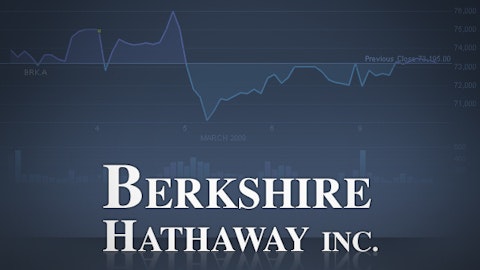
American Express – The third biggest global player
American Express Company (NYSE:AXP) is a leading global services company, providing charge and credit payment card products and travel-related services to customers worldwide. The business operates in four main segments: U.S. Card Services (USCS), International Card Services (ICS), Global Commercial Services (GCS), and Global Network & Merchant Services (GNMS).
Most of its revenue, nearly $16 billion, or 50.7% of total 2012 revenue, was generated from the USCS segment. The ICS segment ranked second with $5.3 billion, while GCS and the GNMS contributed $4.75 billion and $5.27 billion, respectively, in 2012 revenue.
American Express Company (NYSE:AXP) is the third biggest player in terms of total payment volume and number of total cards issued, behind Visa Inc (NYSE:V) and Mastercard Inc (NYSE:MA). While American Express issued 97 million cards with a total payment volume of as much as $808 billion, the total payment volume of MasterCard was $2.43 trillion with more than 1 billion cards issued. Visa is still the global leader with $3.77 trillion in total payment volume and 2.1 billion cards issued in fiscal 2012.
However, investors should notice that the business model of American Express Company (NYSE:AXP) is quite different from the business model of both Visa Inc (NYSE:V) and Mastercard Inc (NYSE:MA). While American Express also acts as a financial provider for its users, Visa and Mastercard Inc (NYSE:MA) act only as the intermediaries between banks, merchants, and card users.
Visa Inc (NYSE:V) and MasterCard do not directly provide loans to customers., they generated revenue only from transaction fees. Thus, investors do not have to worry about credit risk for both Visa and Mastercard Inc (NYSE:MA). American Express, with consumers’ loans, is exposed to credit risks.
Juicy yield
In addition to the dividend increase, American Express Company (NYSE:AXP) plans to buy back up $3.2 billion during the last three quarters of 2013, and an additional $1 billion repurchase in the first quarter of 2014. Thus, in the next four quarters, American Express shareholders’ would receive an additional buyback yield of 5.6% on its current trading price.
In the first quarter 2013, after delivering a sweet 26% growth in profit, Visa Inc (NYSE:V) announced a repurchase plan of $1.75 billion. Visa also declared a quarterly dividend of $0.33 per share payable. Visa is trading at $168.50 per share, with a total market cap of $111.4 billion. Visa’s dividend yield is quite small, at only 0.78%. A $1.75 billion share buyback would create an additional yield of only 1.57%.
MasterCard – international market focus and digital wallet deployment
MasterCard offers the lowest dividend yield of the trio, at only 0.4%. Mastercard Inc (NYSE:MA) has been focusing on expanding its business internationally. In 2012, MasterCard generated nearly $3.65 trillion in gross dollar volume (GDV), with the international market contributing as much as $2.48 trillion. Compared to 2011, the U.S. GDV increased 9% while the GDV in the international market experienced a double-digit growth of 14%.
Recently, Mastercard Inc (NYSE:MA) launched the new MasterPass platform, letting users store their card information into a software program, which could be utilized to make payments. Interestingly, cardholders could even load their information for both debit and credit cards from other brands including American Express Company (NYSE:AXP) and Visa Inc (NYSE:V).
While MasterCard has the digital wallet MasterPass, Visa has V.me, which already has the support of more than 50 banks. In the beginning of February, MasterCard doubled its quarterly dividend to $0.60 per share and announced a new repurchase plan of up to $2 billion worth of shares. Mastercard Inc (NYSE:MA) is trading at $553 per share with a total market cap of $67.9 billion. Thus, the new buyback plan would create an additional yield of nearly 3% for MasterCard’s shareholders.
Among the three, American Express Company (NYSE:AXP) is the cheapest valued at only 13 times its forward earnings. While MasterCard has a higher valuation at more than 18.3 times its forward earnings, Visa Inc (NYSE:V) is the most expensively valued of the trio, at 19.8 times EV/EBITDA.
My Foolish take
Visa Inc (NYSE:V) seems to deserve the highest valuation with its global market leading position in the global card transaction market. Quantitatively, among the three, I like American Express Company (NYSE:AXP) the most due to its lowest valuation and highest dividend yield of 1.2%. Furthermore, the potential buyback would generate a juicy additional yield of 5.6%. Personally, I think it could fit well in the portfolios of patient investors.
The article The Best Card Company for Investors Now originally appeared on Fool.com.
Copyright © 1995 – 2013 The Motley Fool, LLC. All rights reserved. The Motley Fool has a disclosure policy.



